Toronto Area
Toronto, Canada’s largest city, is a vibrant metropolis bustling with diverse cultures and rich history. Nestled along Lake Ontario’s northwestern shore, it serves as a dynamic hub for arts, finance, and culture, drawing visitors and residents alike with its unique blend of modern urbanity and scenic natural beauty.
Renowned for landmarks like the iconic CN Tower and the sprawling, verdant High Park, Toronto offers a kaleidoscope of experiences. From bustling street markets in historic neighborhoods to cutting-edge museums, this cosmopolitan city seamlessly blends tradition with contemporary flair, making it a must-visit destination for travelers and a cherished home for its inhabitants.
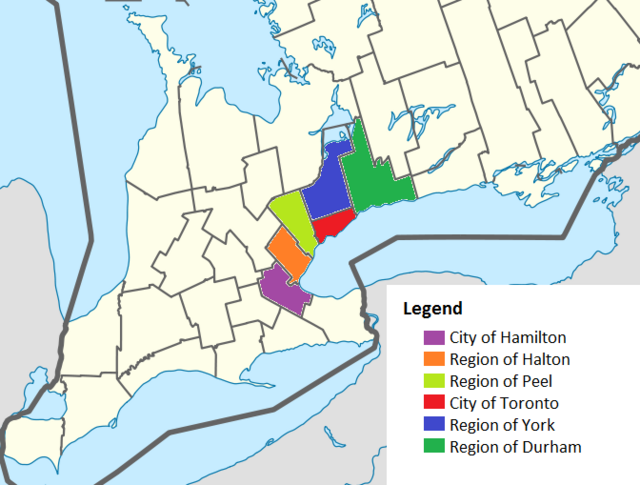
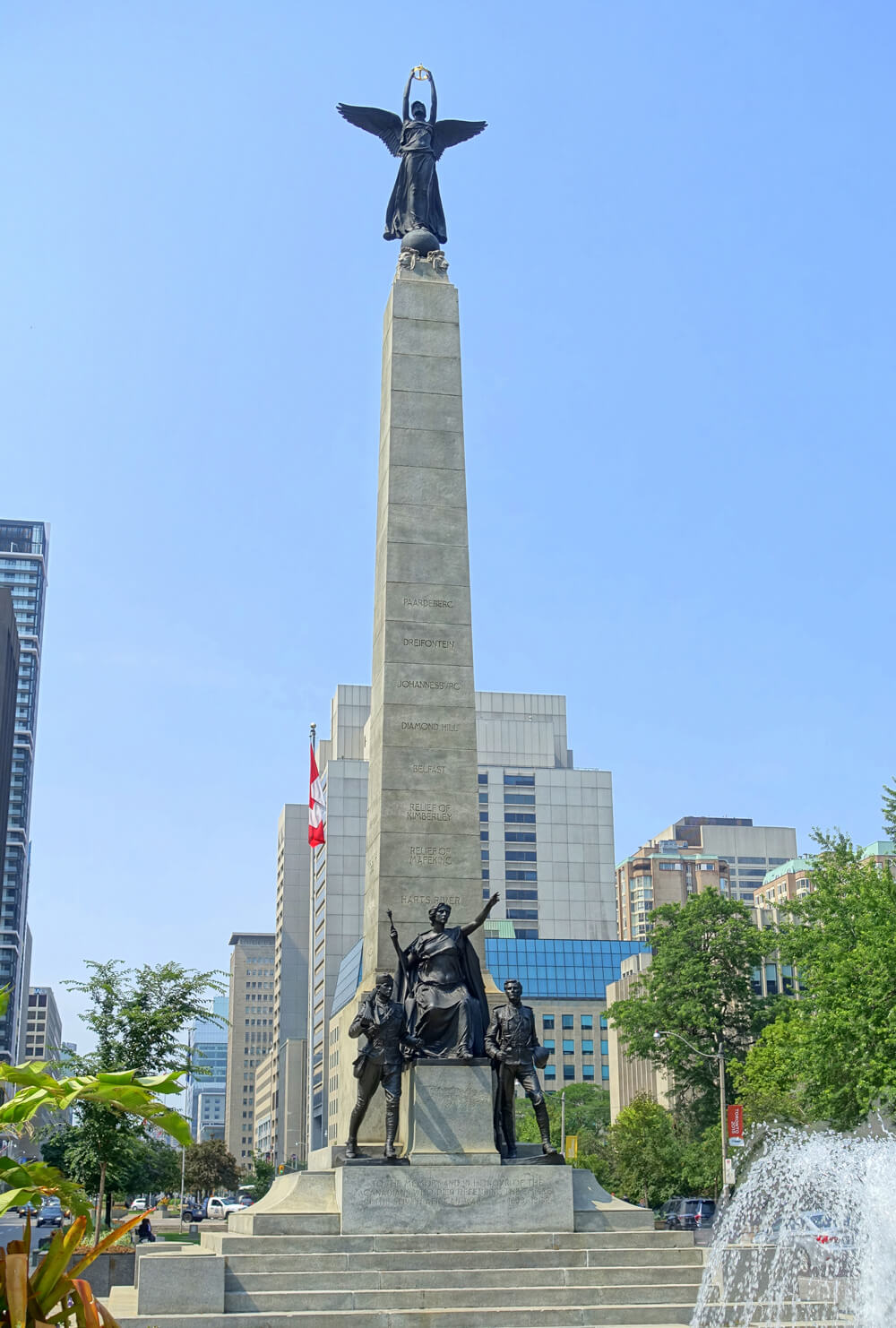
History
Toronto’s history is a tapestry of rich narratives, beginning long before European settlers arrived. Originally inhabited by Indigenous peoples, including the Huron, Iroquois, and Ojibwa, the area was a vital hunting and trading ground.
The modern history of Toronto begins in the late 18th century. In 1793, Lieutenant Governor John Graves Simcoe established the town of York, the precursor to Toronto, envisioning it as a naval base and bulwark against American expansion. York played a pivotal role in the War of 1812, enduring several American attacks.
In 1834, York was reincorporated as Toronto, rapidly growing into a major port and transportation hub, thanks to its strategic location on Lake Ontario. The city’s growth in the 19th century was marked by waves of immigration, bringing diverse cultures and driving economic expansion. This period saw significant developments like the construction of the Gooderham and Worts Distillery and the iconic St. Lawrence Market, which became central to Toronto’s social and economic life.
The 20th century heralded transformational changes. The city expanded its boundaries, absorbing surrounding communities. Toronto became a center for finance, industry, and culture, with landmarks like the Royal Ontario Museum and the University of Toronto shaping its intellectual and cultural landscape. The post-war era saw another immigration wave, further diversifying the city’s ethnic and cultural makeup.
In recent decades, Toronto has emerged as a global city. The completion of the CN Tower in 1976 symbolized this ascendance. Today, Toronto is celebrated for its multiculturalism, robust economy, and as a center for arts, media, and education, reflecting its journey from a small colonial outpost to a bustling, world-class urban center.
Culture
Toronto’s culture is a vibrant mosaic, a reflection of its status as one of the world’s most multicultural cities. This diversity is the lifeblood of Toronto’s cultural scene, infusing it with a range of traditions, foods, languages, and artistic expressions that make the city a global cultural powerhouse.
Food is a cornerstone of Toronto’s cultural identity, offering a culinary journey around the globe. Neighborhoods like Chinatown, Little Italy, and Greektown provide authentic dining experiences, while annual events like Summerlicious showcase the city’s gastronomic diversity. Toronto’s St. Lawrence Market, one of the world’s great food markets, serves as a central gathering place, offering local Canadian fare alongside international delicacies.
The arts thrive in Toronto. The city hosts world-renowned events such as the Toronto International Film Festival, attracting global film stars and cinephiles. The Art Gallery of Ontario and the Royal Ontario Museum offer glimpses into stunning art collections and historical artifacts, while the Distillery District’s cobblestone streets are lined with art galleries, live music, and theater performances.
Toronto’s music scene is equally eclectic, from the Canadian Opera Company to underground music venues that have given rise to numerous notable bands and artists. The city’s jazz, blues, hip hop, and indie scenes are particularly vibrant, hosting regular performances in venues ranging from intimate bars to grand concert halls.
Festivals and events celebrate Toronto’s cultural diversity, including the Caribbean Carnival, known for its colorful parade and exuberant music, and the Toronto Pride Parade, one of the largest LGBTQ+ events in the world. These festivals not only celebrate specific cultures but also foster a sense of community and inclusivity.
Toronto’s cultural landscape is also shaped by its neighborhoods, each with its own unique character. From the trendy shops and cafes of Queen West to the historic architecture of the Distillery District, these neighborhoods offer a diverse range of experiences that collectively define Toronto’s culture. This rich tapestry of cultural influences makes Toronto a dynamic and exciting city, constantly evolving and offering something new to discover.
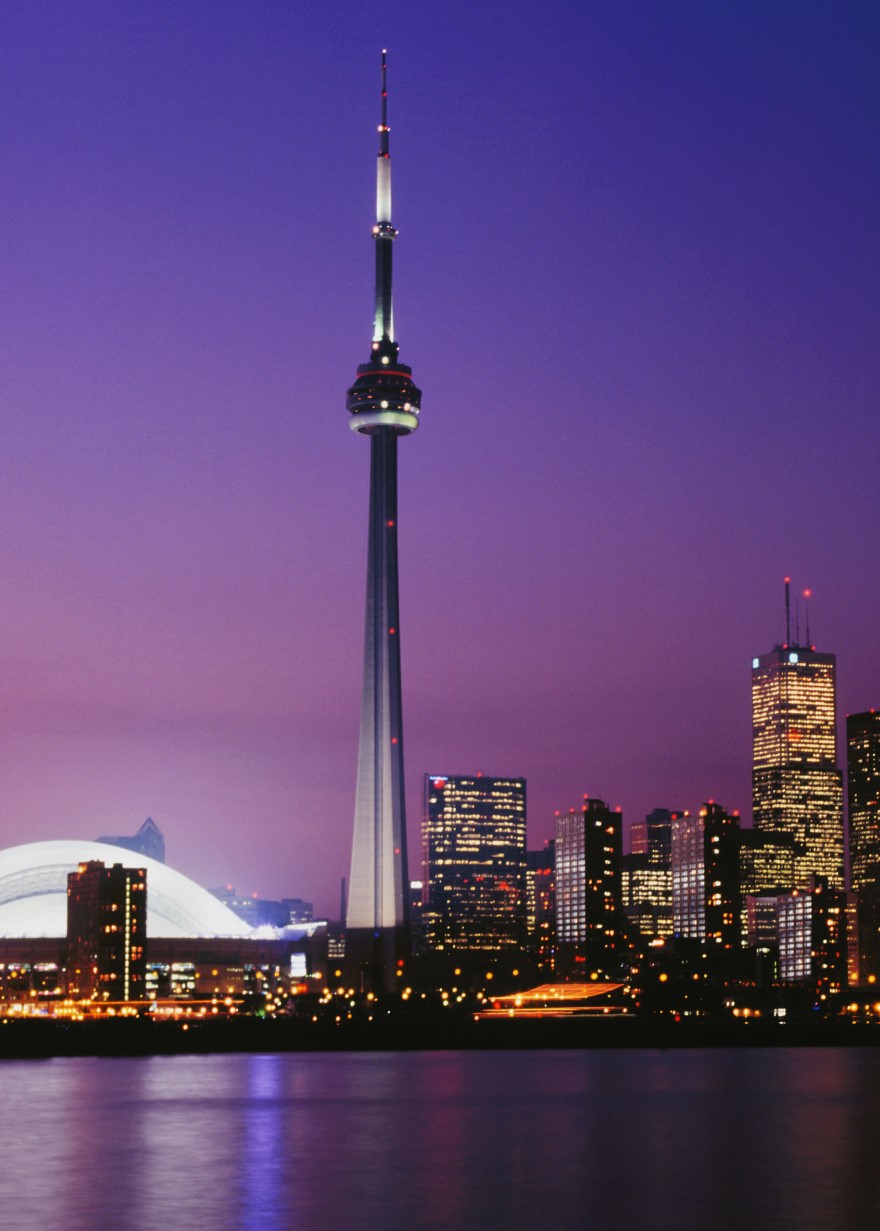
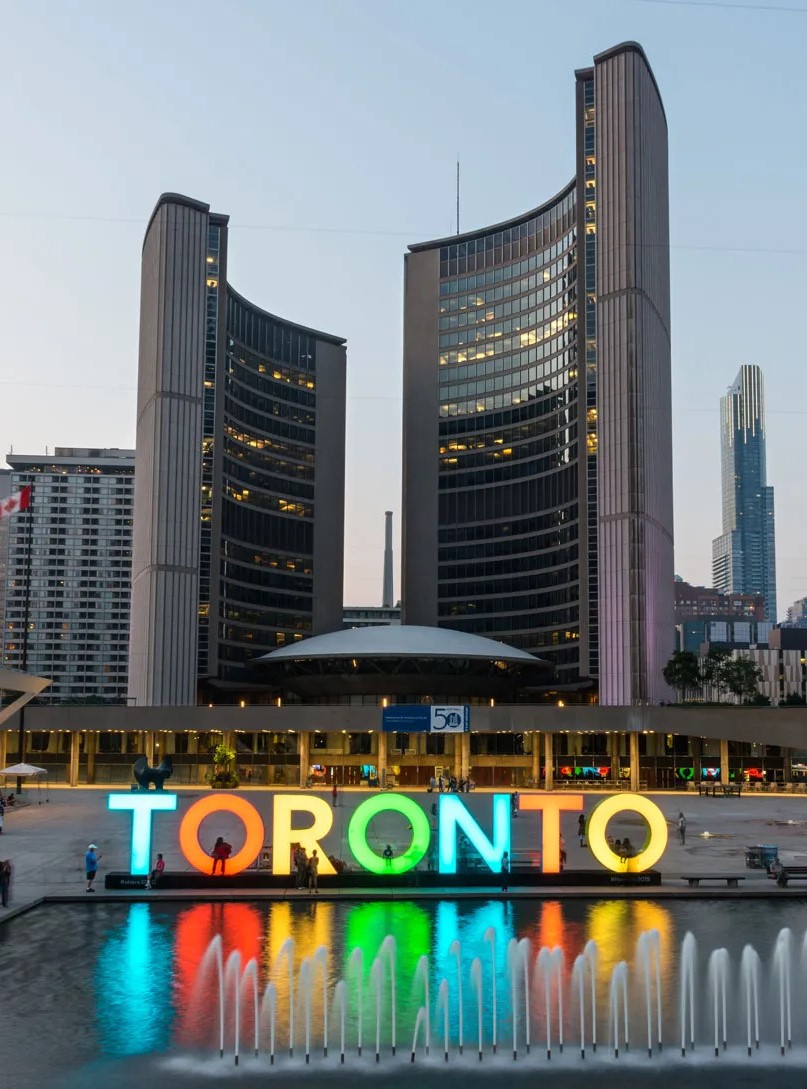
Economy
Toronto’s economy is a powerhouse, reflective of its status as Canada’s financial and business capital. This dynamic economy is characterized by its diversity, strength in various sectors, and a highly skilled workforce, making it a magnet for businesses and investors globally.
Finance is the backbone of Toronto’s economy. The city is home to the Toronto Stock Exchange, the seventh-largest in the world by market capitalization, and headquarters of Canada’s major banks and financial institutions. This concentration of financial services has made Toronto a key player in global finance, attracting talent and investment from around the world.
Technology is another cornerstone of Toronto’s economic landscape. The city has emerged as a major hub for innovation and tech startups, fueled by a robust ecosystem of universities, research institutions, and a thriving venture capital scene.
The city’s economy also benefits from strong industrial, manufacturing, and trade sectors. Toronto’s strategic location and extensive transportation network, including the Port of Toronto and major rail and highway routes, facilitate trade across Canada and with international markets, particularly the United States.
Toronto’s cultural and creative industries add significant value to its economy. From film and television production to music and digital media, these industries not only generate economic growth but also enhance the city’s global profile. The Toronto International Film Festival, for example, not only brings in celebrities and cinema enthusiasts but also has a substantial economic impact on the city.
Education and healthcare are vital components of Toronto’s economy, with world-renowned institutions like the University of Toronto and the Hospital for Sick Children driving innovation and providing employment.
Tourism also plays a significant role, with landmarks like the CN Tower, Royal Ontario Museum, and the vibrant cultural and entertainment districts drawing millions of visitors annually.
Politics
Toronto’s political scene is as diverse and dynamic as the city itself. As the capital of Ontario and the largest city in Canada, it holds significant influence in provincial and national politics. The city’s governance structure is led by a mayor and a city council, representing wards across Toronto. This body is responsible for a wide range of urban issues, from public transit and housing to environmental initiatives and public safety.
Political debates in Toronto often revolve around urban development, reflecting the city’s rapid growth and the challenges it brings, such as housing affordability, infrastructure, and maintaining public services. Environmental policies and sustainable urban planning are increasingly at the forefront of the city’s political discourse, as Toronto aims to balance growth with sustainability.
The city’s multicultural makeup also ensures that its political landscape is representative of a variety of perspectives, making Toronto a microcosm of Canada’s broader political and cultural diversity. Civic engagement is strong, with residents actively participating in local issues, reflecting the city’s vibrant democratic spirit.
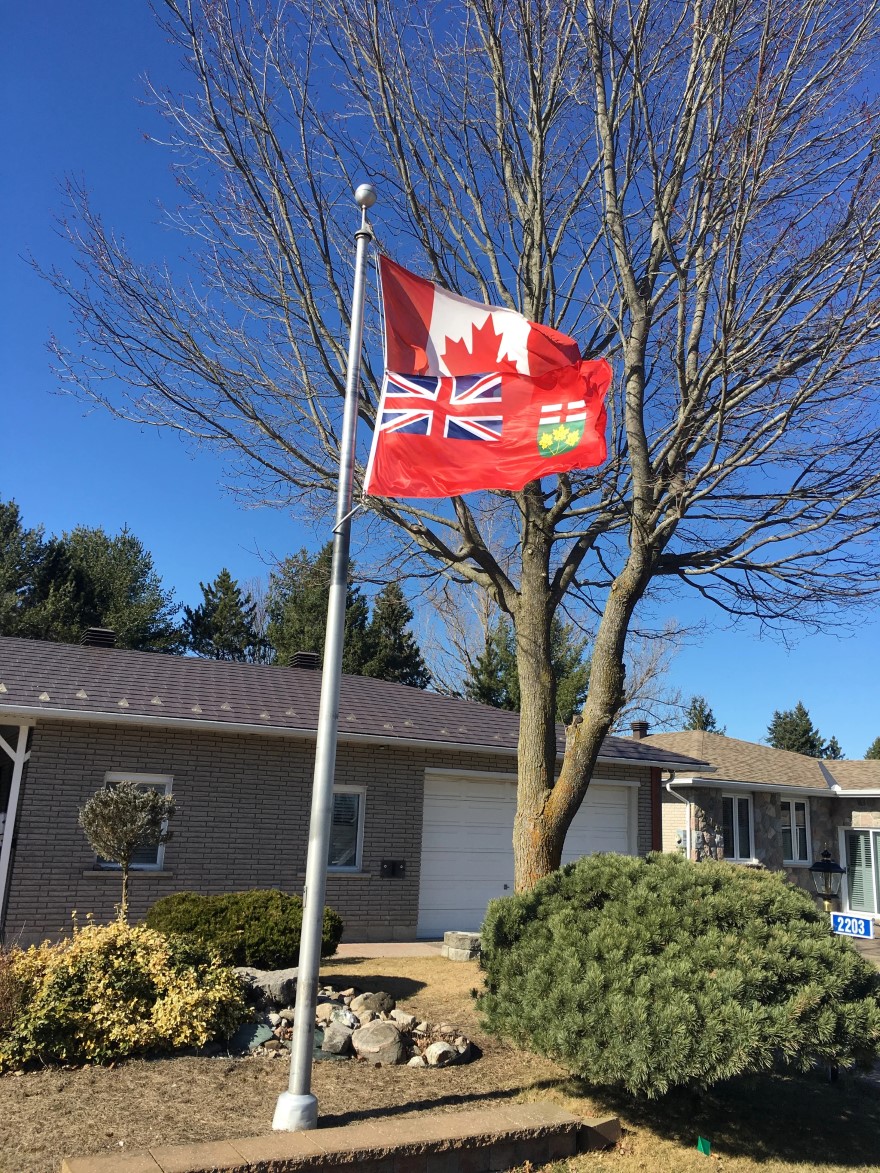
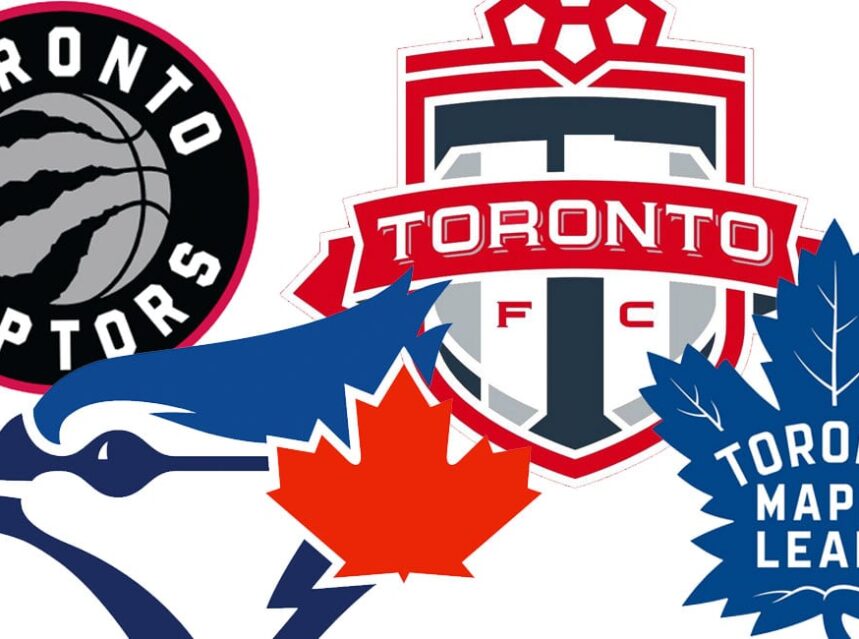
Sports
Toronto is a city passionate about sports, boasting a rich tapestry of teams and events that cater to a wide range of preferences. At the heart of Toronto’s sports scene are its professional teams. The Toronto Maple Leafs, one of the NHL’s Original Six, inspire a fervent following in ice hockey. Summers are dominated by the Toronto Blue Jays, the city’s Major League Baseball team, known for their spirited games at the Rogers Centre.
Basketball fans rally behind the Toronto Raptors, an NBA team that has seen a surge in popularity, especially after their historic championship win in 2019. Soccer enthusiasts cheer on Toronto FC, the city’s Major League Soccer team, known for their passionate supporters and competitive play.
Toronto also hosts a variety of sporting events that attract international attention. The Honda Indy Toronto brings high-speed motor racing to the city streets, while the Queen’s Plate, Canada’s oldest thoroughbred horse race, is a highlight in horse racing.
Recreational sports are equally vibrant, with the city’s parks and facilities supporting activities like cycling, soccer, basketball, and ultimate frisbee. The Scotiabank Toronto Waterfront Marathon is a premier event, drawing runners from around the globe. This blend of professional, international, and community sports underscores Toronto’s status as a diverse and enthusiastic sports city.
